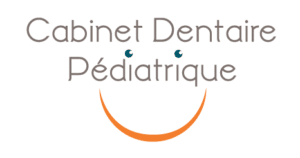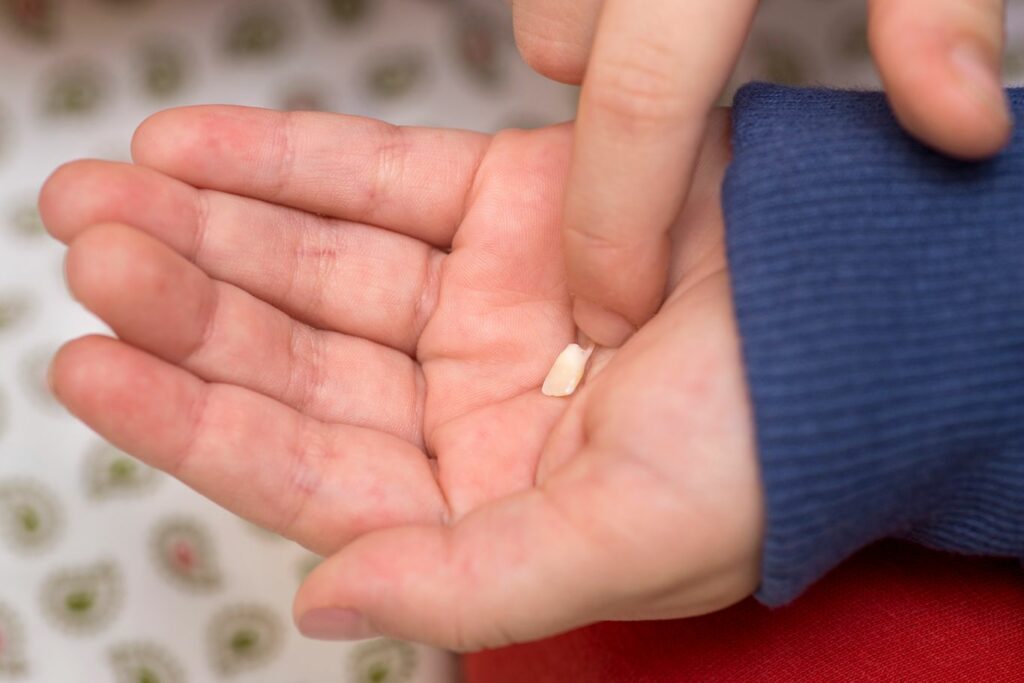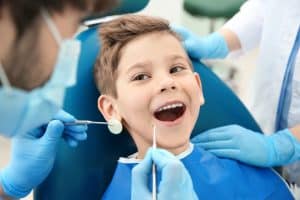A milk tooth that breaks by itself is the result of dental trauma, which may have been caused by several reasons. Dental shocks are frequent in young children, the upper incisors being the most frequently affected teeth because of their advanced position in the mouth. Let's find out what to do if a baby tooth breaks.
The main causes of a baby tooth that breaks by itself
Fracture of a baby tooth can be the result of:
- Trauma to the jaw following a blow or a fall,
- Chewing a particularly strong food,
- The formation of a partial lesion due to untreated decay,
- The devitalization of a broken tooth,
- A dental disorder such as bruxism.
Crumbling baby teeth: potential risks
Trauma with dental fractures is common in children. Generally, a baby tooth fracture does not pose a risk to the underlying permanent tooth. However, it is advisable to consult a pedodontist to treat a baby tooth that breaks on its own.
The dentist may also perform an x-ray to detect any present or future complications.
The possible risks following a crumbling baby tooth are:
- Abscess It is imperative to keep an eye on the broken tooth and the gums that are in contact with it. In case of unusual redness or the appearance of pimples, it is advisable to make an appointment with the dentist without delay.
- Delayed appearance of permanent teeth : When the change of dentition is initiated in a child, the devitalized teeth may have difficulty falling out because of the root of the baby tooth that is not resorbed properly. Generally, a baby tooth falls out within a few weeks after the permanent tooth erupts.
What to do if a tooth breaks on its own?
If a baby tooth breaks on its own, the best thing to do is to see a dentist as soon as possible. He or she will take an x-ray and treat the damaged tooth.
In any case, it is important to be reactive because the consequences of a broken tooth can be numerous: dental fracture, complete dislocation of the tooth, devitalization of the tooth concerned, etc.
In the vast majority of cases, the underlying permanent tooth is not affected, especially in young children.
What are the possible treatments?
The dentist treats the crumbling tooth or teeth in different ways depending on the severity of the injury.
One of the goals of treatment is to avoid any therapeutic consequences. Treatments that do not require anesthesia or the use of rotating instruments are preferred to avoid causing anxiety to the young patient. Therapy should only be considered in cases of significant dental trauma.
The dental pulp is not affected
The dentist tries to glue the broken piece of tooth back together. If the piece of tooth cannot be reused, the dentist applies a strong resin to repair the cracked tooth.
The pulp of the tooth is affected
The dentist removes the tooth and fills it with a suitable filling. If the tooth is fragile, a prosthetic crown is placed over it.
The dental root is fractured
The extraction of the baby tooth that breaks is the only possible solution. The dentist will then place a removable appliance to prevent the permanent teeth from spacing out.
Seeing a dentist is the right thing to do if your child's tooth breaks on its own, as the causes of a progressive tooth fracture should be carefully diagnosed.


